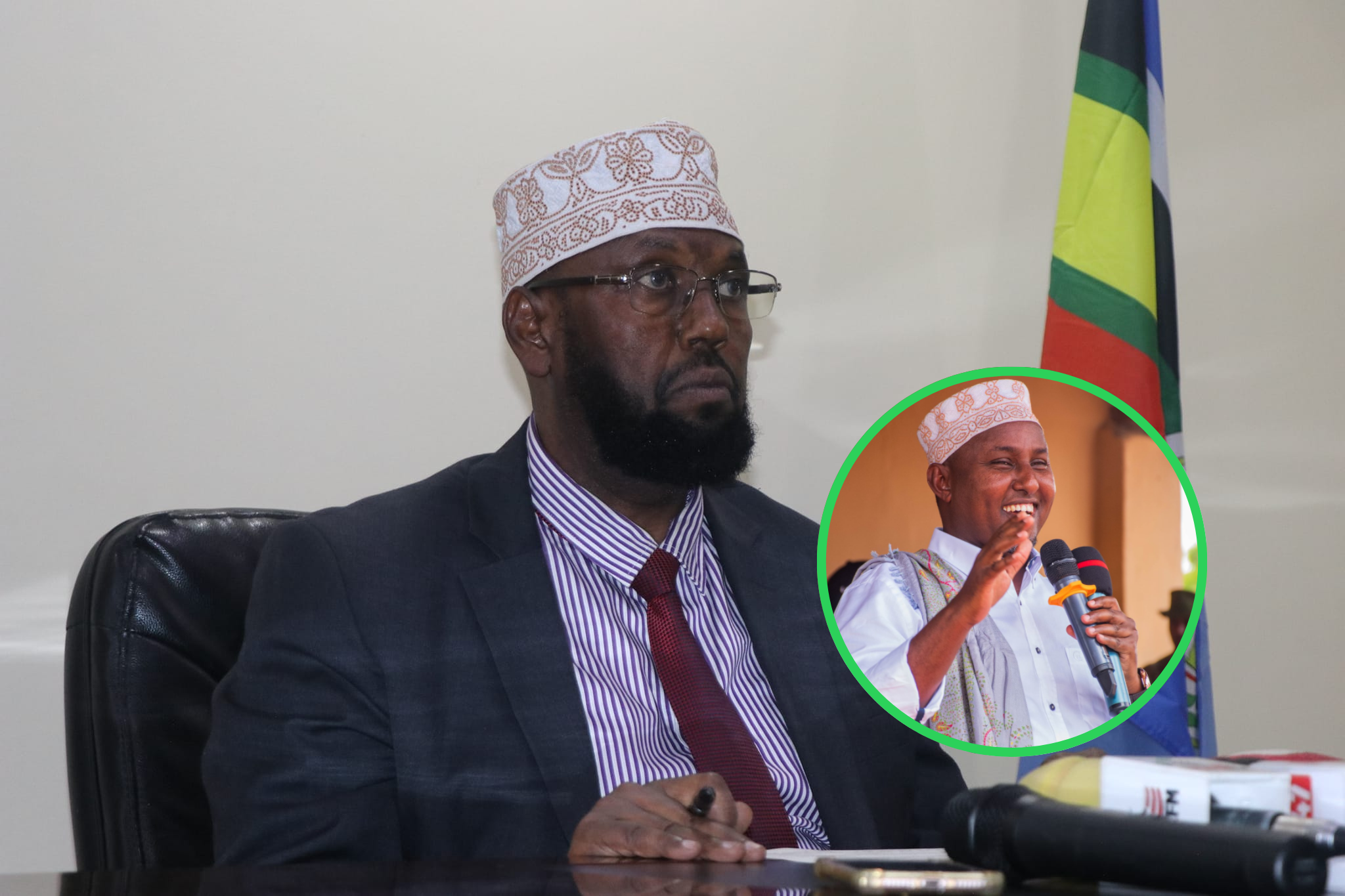Nairobi, May 31 : Nominated IEBC commissioner Hassan Noor Hassan appeared before the National Assembly's Justice and Legal Affairs Committee for vetting during public hearings held in the Mini Chamber at County Hall, Nairobi.
Hassan was nominated by President William Ruto on May 8, 2025, as part of the process to reconstitute the electoral body following the expiry of the previous commissioners’ terms and the resignation of others in the wake of the contested 2022 General Election.
Appearing before the Committee, the nominee opened up about his relationship with Suna East Member of Parliament, Junet Mohammed.
Hassan confirmed that he is related to Suna East MP, Junet Mohammed.
“I am related to Junet Mohammed; he is my brother-in-law,” Hassan Noor stated.
Further, he reassured the panel that his nomination was based on merit and that his relationship with Junet Mohammed does not compromise his integrity.
On the issue of allegedly being sneaked into the second list, Hassan Noor clarified that he is a Kenyan citizen and fully qualified to apply for the position.
Additionally, he said he was among the over 1,000 applicants and had no involvement in how his name appeared on the list.
“When I found my name on the second list, I appeared for the interview, I had absolutely no role in influencing the process,” he said.
This follows concerns raised about Hassan Noor, stating that the nominated commissioner is a relative of Suna East Member of Parliament Junet Mohammed and was not included on the original shortlist.
Noor Hassan also defended his integrity and performance as a public servant, saying he was a key part of the response team that helped restore order during the 2007 post-election violence in Rift Valley.
Hassan also addressed questions about his role in past elections, saying his position as a young officer in 1988 had no impact on the outcome.
“I was a very young officer. I was barely two years old in service. I was inconsequential as far as the 1988 election is concerned,” Hassan said.
During the 2007 crisis, Hassan was the Provincial Commissioner for Rift Valley.
He said the region was already tense when he took up the role.
“There has been a lot of conflict within the region, in Molo, in Turkana, in Samburu, in Trans Nzoia. We managed to bring the conflict down before the elections,” the nominee told the committee.
Hassan said his efforts were officially recognised.
“I was awarded the best public officer of the year in 2007. I got the Kenya National Human Rights Commission award as the best public servant of the year in the way we managed conflict in the province at that time,” he said.
He said violence erupted despite their efforts, but blamed it on incitement and political statements. “There have been incitement, there are inflammatory statements by leaders. So it happened,” Hassan said.
The nominee credited his team’s response during the crisis and said they earned praise from the late Kofi Annan.
“If there is one committee that has served this country at the height of the post-election violence, and will require to be recognised, it is the committee led by the Provincial Commissioner of Rift Valley,” he quoted Annan.
“I was a solution. I provided a solution required to make sure that we minimised the loss of lives and property during the post-election violence,” Hassan added.
He said he also led a programme to return displaced people to their homes.
“I coined operation Rudi Nyumbani. That was my slogan. Within 90 days, we were able to return over 70 per cent of the population back to their farms,” Hassan concluded.
Hassan said he was wrongly linked to corruption at the National Youth Service but was cleared.
“NYS investigations were done, people were taken to court, being one of them, but we were acquitted for lack of evidence. I was not convicted, I was acquitted of the charges in 2018,” he told the committee.
Additionally, he stated that his net worth is Ksh 500 million.
Should Parliament approve his nomination, Hassan will join the commission tasked with overseeing Kenya’s electoral processes, including the critical 2027 General Election, which is expected to be a key test of the country’s democratic institutions.
The vetting exercise started in the morning with nominated IEBC Chair Erastus Ethekon, Anne Nderitu and Moses Mukhwana appearing first, second and third, respectively, before the committee.







